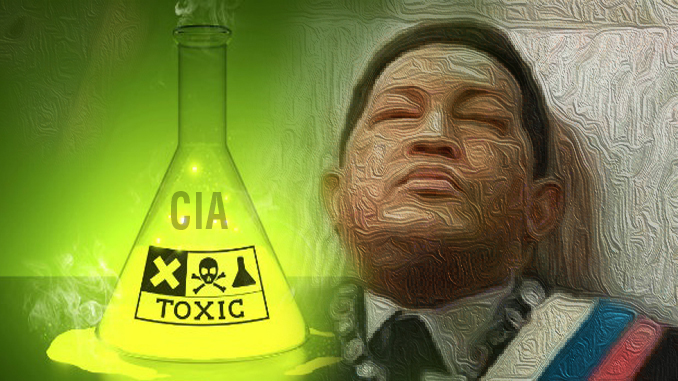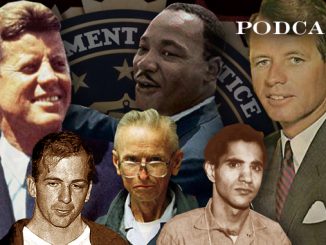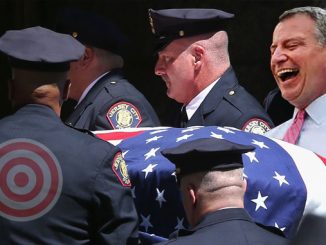
Venezuela’s current president, Nicolas Maduro, and others allege the United States poisoned his country’s late firebrand socialist leader Hugo Chavez. Though this may seem questionable, scientists have admitted nano-weapons are now capable of delivering illnesses “ranging from stroke to respiratory failure to AIDS.”
By S. T. Patrick
“I don’t want to die. . . . Please don’t let me die,” were the final words of Venezuelan President Hugo Chavez in 2013. Shortly after his death, the Venezuelan presidential guard confirmed the cause of death as a heart attack after a lengthy battle with colon cancer. The state funeral had barely come to a close, however, when rumors of assassination began spreading among Venezuelan diplomats. How close were those rumors to reality? There is real evidence that Chavez was murdered.
Nicolas Maduro, who served as vice president under Chavez, publicly commented on the allegations of assassination as Chavez suffered through his waning days.
“We have no doubt that Commandant Chávez was attacked with this illness; we have not a single doubt,” Maduro said. “The established enemies of our land specifically tried to harm the health of our leader.”
Maduro compared the illness of Chavez to that of former Palestinian Liberation Organization leader Yasser Arafat. In 2004, Arafat died one month after coming down with “flu-like” symptoms. Supporters and Palestinian leaders floated the idea that Arafat was medically poisoned by operatives of the Israeli Mossad.
It is not a fanciful assertion that Chavez could have been targeted for assassination by the international community that controls the world’s most powerful institutions. As president of an oil-rich nation with the largest reserves outside of the Middle East, he enacted a plethora of initiatives aimed at enriching Venezuelans at the expense of globalists.
After having paid its debts five years early, Chavez in 2007 declared that he was severing ties with the World Bank and the International Monetary Fund. He no longer wanted associations with institutions “dominated by U.S. imperialism.”
When the Spanish owner of the Banco de Venezuela attempted to sell the privatized bank to a group of investors in 2008, Chavez nationalized it “to put (the bank) at the service of Venezuela.”
Within three years of Chavez’s death, the internationalists had already encroached into Venezuela in ways that would never have been allowed by Chavez. By 2016, Venezuela’s state bank had entered into negotiations with Deutsche Bank AG. The deal with Germany’s banking power house enabled gold swaps and changes to Venezuela’s foreign reserves.
The international community might as well face that they are addicted to oil, a factor that makes literal and covert control of Venezuela very attractive to the world’s militaristic billionaire class. Petroleum accounts for over 50% of revenue and 70% of exports in Venezuela.
William Blum, author of Killing Hope: U.S. Military and CIA Interventions Since World War II, described the vehemence with which the U.S. military-industrial complex disdained Chavez.
“There was no one in the entire universe that those who own and run ‘United States, Inc.’ wanted to see dead more than Hugo Chávez,” Blum wrote. “He was worse than (Chilean President Salvador) Allende. Worse than Fidel Castro. Worse than any world leader not in the American camp because he spoke out in the most forceful terms about U.S. imperialism and its cruelty. Repeatedly. Constantly. Saying things that heads of state are not supposed to say. At the United Nations, on a shockingly personal level about George W. Bush. All over Latin America, as he organized the region into anti-U.S.-Empire blocs.”
Chavez had seen three other leftist leaders contract cancer in Latin America. But when Argentina’s leftist president, Cristina Fernandez de Kirchner, announced she had cancer in 2011, Chavez wondered aloud whether or not the cancer was random.
“Would it be so strange that they’ve invented the technology to spread cancer, and we won’t know about it for 50 years?” Chavez asked.
Maduro, who was elected president following Chavez’s death, remained steadfast in his pro-assassination beliefs as he adjusted to the robust necessities of Venezuelan leadership.
“We will seek the truth,” Maduro said. “We have the intuition that our Commander Chavez was poisoned by dark forces that wanted him out of the way.”
By 2016, scientists were admitting that nano-weapons were capable of transporting disease-provoking nanoparticles that can carry illnesses ranging from stroke to respiratory failure to AIDS.
S. T. Patrick holds degrees in both journalism and social studies education. He spent 10 years as an educator and now hosts the “Midnight Writer News Show.” His email is [email protected].




